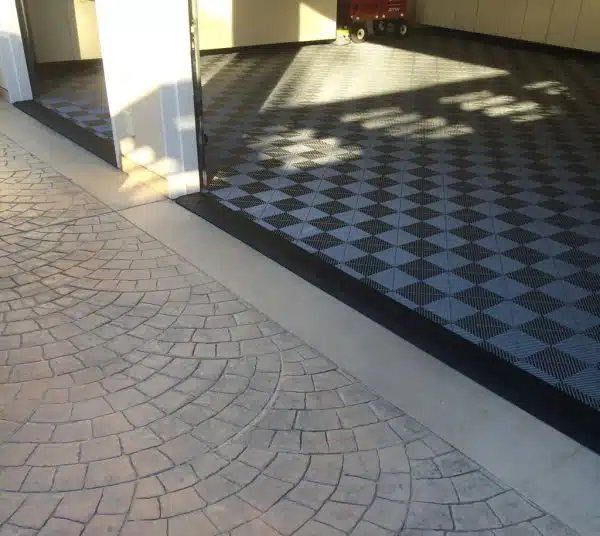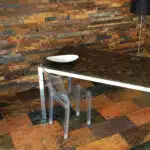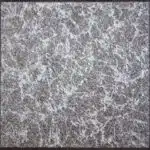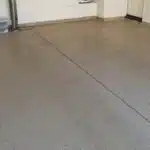Garage floors are often neglected and overlooked areas in many homes, yet they play a crucial role in keeping automobiles and other equipment safe and secure. Garage floor tiles have become an increasingly popular solution for homeowners who want to enhance the look and functionality of their garage floors. As a garage floor tile expert, I will explore the various types of garage floor tiles available on the market today, their benefits, as well as what you need to know before making your selection.
Garage floor tiles come in a wide range of materials, textures, sizes, and colors. Each material has its unique properties that make it suitable for specific applications. From PVC and rubber to ceramic and porcelain tiles, there is no shortage of options when it comes to garage flooring. These tiles offer durable protection against oil stains, chemical spills, scratches, and cracks while also providing an attractive finish that complements any decor style. In this article, we will delve into the different types of garage floor tiles available on the market today and provide insights into what you need to consider before making your choice.
Pvc Garage Floor Tiles
When it comes to garage floor tiles, PVC is a popular choice among homeowners. PVC garage floor tiles have a range of advantages that make them an ideal option for those looking to upgrade their garage flooring. One of the most significant advantages of PVC garage floor tiles is their durability. These tiles are made from a tough material that can withstand heavy loads and high traffic areas.
Another advantage of PVC garage floor tiles is that they are water-resistant, which makes them perfect for garages where spills and leaks are common. These tiles also have a non-slip surface, which provides traction even in wet conditions. However, one disadvantage of using PVC garage floor tiles is that they can be prone to fading over time when exposed to sunlight. Additionally, they may not be as resistant to oil and chemicals as rubber garage floor tiles.
When comparing PVC and rubber garage floor tiles, there are some key differences to consider. While both materials offer durability and easy installation, rubber tiles tend to be more resistant to chemical damage than PVC ones. Rubber also has better sound-dampening properties, which can be important if you plan on using your garage as a workspace or recreational area. Overall, the choice between PVC and rubber will depend on your specific needs and preferences for your garage flooring.
Rubber Garage Floor Tiles
Rubber garage floor tiles are an excellent option for homeowners who want a durable and long-lasting flooring solution. These tiles are made from recycled rubber, making them eco-friendly and environmentally sustainable. Additionally, they are available in a wide range of sizes, colors, and patterns, allowing homeowners to create a custom look that suits their aesthetic preferences.
Pros and Cons: One of the primary advantages of rubber garage floor tiles is that they offer excellent traction, even when wet. This makes them ideal for garages where spills and leaks are common. They are also incredibly durable and can withstand heavy foot traffic, equipment, and vehicles without cracking or fading. However, one potential downside to these tiles is that they may emit an odor when first installed. This odor typically dissipates over time but can be bothersome for some homeowners.
Best Brands for Rubber Garage Floor Tiles: When shopping for rubber garage floor tiles, it’s important to choose a high-quality brand that offers durability and reliability. Some of the best brands on the market include IncStores, Rubber-Cal, and Racedeck. These brands offer a variety of options in terms of size, color, pattern, and price point so that homeowners can find the perfect fit for their needs.
The use of rubber garage floor tiles has become increasingly popular among homeowners due to their many benefits. While there are some potential downsides to consider before making a purchase decision, overall these tiles provide excellent durability and customization options that make them an attractive choice for any garage space. In the next section, we will explore ceramic garage floor tiles as another potential option for homeowners seeking durable flooring solutions.
Ceramic Garage Floor Tiles
Rubber garage floor tiles may be a popular choice among garage owners, but they are not the only option available. Ceramic garage floor tiles are another viable choice for those looking to upgrade their garage flooring. While it may seem ironic that ceramic tiles, which are commonly used in kitchens and bathrooms, can be used in garages, they offer unique advantages that rubber tiles cannot match.
One of the main advantages of ceramic garage floor tiles is their durability. Unlike rubber tiles, ceramic tiles are resistant to scratches, stains, and impact damage. They also have a longer lifespan than most other flooring options. However, this durability comes at a cost as ceramic tiles tend to be more expensive than other flooring materials.
Another advantage of ceramic garage floor tiles is their aesthetic appeal. They offer a wide range of design options to choose from and can add an elegant look to any garage space. However, there are also disadvantages with using ceramic tiles for garage floors. They can be slippery when wet and require regular maintenance to keep them clean and free from cracks or chips.
Table: Best Brands for Ceramic Garage Floor Tiles
| Brand | Features | Price Range |
|---|---|---|
| Porcelanosa | Wide variety of designs and colors | High-end |
| RAK Ceramics | Durable with slip-resistant surface | Mid-range |
| Cotto d’Este | Resistant to chemicals and stains | High-end |
| Florim USA | Large format sizes available for easy installation | Mid-range |
| Marazzi USA | Scratch-resistant with multiple design options | Mid-range |
When considering ceramic garage floor tile options, it’s important to weigh the advantages against the disadvantages before making a decision. It’s also essential to choose the right brand that will suit your budget and preferences without sacrificing quality or functionality. Some of the best brands for ceramic garage floor tiles include Porcelanosa, Cotto d’Este, RAK Ceramics, Florim USA, and Marazzi USA. In the next section, we will explore another popular material for garage floor tiles – porcelain.
Porcelain Garage Floor Tiles
Porcelain Garage Floor Tiles are becoming increasingly popular in the market. Advantages of porcelain tiles include their durability, resistance to stains, and easy maintenance. They are also resistant to moisture, making them perfect for garages that are prone to dampness.
However, there are also disadvantages to using porcelain garage floor tiles. The cost is higher than other tile options, and they can be more difficult to install due to their weight and thickness. Additionally, if a tile cracks or chips, it can be challenging to replace without noticeable differences in texture or color.
When it comes to choosing the best porcelain garage floor tile brands, there are several options available. Some of the top brands include Racedeck, Swisstrax, and Gladiator. These brands offer a variety of styles and colors that can suit any garage aesthetic.
Bullet Point List:
- Porcelain tiles provide a sleek and modern look
- They are highly durable and long-lasting
- Resistant to moisture and stains
- Choosing the right brand is important for quality installation
Transition: Now that we have explored the advantages and disadvantages of porcelain garage floor tiles as well as some of the best brands available on the market; let’s delve into interlocking garage floor tiles.
Interlocking Garage Floor Tiles
Interlocking garage floor tiles are a great way to improve the look and functionality of a garage. They are available in a variety of styles, including PVC, rubber, epoxy, and polypropylene. The installation process for interlocking garage floor tiles is relatively simple and can be accomplished in a few steps. It is important to ensure that the floor is level, clean, and dry before installation. After installation, regular maintenance is necessary to ensure that the tiles remain in good condition. This includes cleaning the tiles regularly, inspecting for signs of damage, and replacing any damaged tiles. Lastly, it is important to ensure that any chemicals used in the garage are compatible with the tiles.
Types Of Garage Floor Tiles
To make your garage floor look stunning and durable, interlocking garage floor tiles are a great option. These tiles offer an easy DIY installation process that doesn’t require any professional help. There are various types of interlocking garage floor tiles available in the market, each with its own set of advantages.
One type of interlocking garage floor tile is made from PVC plastic. These tiles are known for their durability and resistance to oil and grease stains. They come in a variety of colors and patterns that can be mixed and matched according to your preference. Moreover, these eco-friendly options are lightweight and easy to install.
Another popular option is the polypropylene tile. This type of tile is ideal if you’re looking for an affordable yet sturdy solution for your garage floor. It comes in different thicknesses, so you can choose the one that will work best for your specific needs. Plus, polypropylene tiles are resistant to chemicals, making them perfect for garages where heavy machinery or vehicles may be stored.
Overall, when choosing interlocking garage floor tiles, it’s essential to consider factors such as durability, ease of installation, and eco-friendliness. PVC plastic tiles and polypropylene tiles are two popular choices that offer all these benefits while also being cost-effective solutions for any homeowner looking to upgrade their garage flooring without breaking the bank.
Installation Process
Interlocking garage floor tiles are a popular choice for homeowners who want to upgrade their garage flooring. These tiles offer a variety of benefits, including durability, resistance to stains, and affordability. One significant advantage of interlocking garage floor tiles is their DIY installation process. This means that homeowners can easily install the tiles themselves without needing professional help.
For those who enjoy tackling home improvement projects on their own, interlocking garage floor tiles are an excellent option. The DIY installation process is straightforward and requires minimal tools and equipment. Homeowners can simply snap the tiles together like puzzle pieces, creating a seamless and uniform surface on their garage floor.
The ease of installation makes interlocking garage floor tiles accessible to anyone looking to upgrade their garage flooring. Whether you’re a seasoned DIY enthusiast or someone with little experience in home improvement projects, installing interlocking garage floor tiles is an achievable task that can be completed quickly and efficiently. With this easy installation process, homeowners can enjoy a beautiful and durable garage floor without the hassle of hiring professional installers.
Maintenance Tips
As a garage floor tile expert, it is important to not only discuss the benefits of interlocking garage floor tiles but also provide essential maintenance tips for long-term upkeep. While these tiles are durable and resistant to stains, regular cleaning is still necessary to maintain their appearance and functionality.
To ensure that the interlocking garage floor tiles remain in top condition, homeowners should regularly sweep or vacuum the surface to remove any loose debris or dirt. It is also recommended to use a damp mop with a mild detergent solution for deeper cleaning. Avoid using harsh chemicals or abrasive cleaners as they may damage the surface of the tiles.
Aside from regular cleaning, it is also important to address any spills or stains immediately. Wiping up spills as soon as possible can prevent them from seeping into the seams between tiles and causing long-term damage. For stubborn stains, homeowners can use a gentle scrub brush with warm water and mild detergent.
By following these simple maintenance tips, homeowners can ensure that their interlocking garage floor tiles continue to look great and perform well for years to come. Regular cleaning and prompt attention to spills or stains can help prevent costly repairs or replacements in the future.
Peel And Stick Garage Floor Tiles
Did you know that DIY installation of garage floor tiles has become increasingly popular in recent years? In fact, according to a survey conducted by Home Advisor, 80% of homeowners prefer to do home improvement projects themselves. This statistic highlights the growing trend of DIY culture and the desire for homeowners to take charge of their own home improvements.
Peel and stick garage floor tiles are an excellent option for those looking for a quick and easy installation process. These tiles are made with a self-adhesive backing that eliminates the need for any messy adhesives or epoxies. Unlike interlocking tiles, peel and stick tiles can be applied directly onto your existing garage floor without any preparation necessary. This makes them an ideal option for those who want to update their garage flooring without spending a lot of time or money on installation.
When comparing peel and stick tiles to interlocking garage floor tiles, it’s important to consider your specific needs. Interlocking tiles provide a more durable solution as they lock together securely, creating a strong foundation that can withstand heavy use. However, these types of tiles require more preparation work before installation as they need a level surface to lay on. Ultimately, the decision between peel and stick vs interlocking tiles comes down to personal preference and budget.
As you consider the various options available for your garage flooring project, keep in mind that choosing the right type of tile is crucial to achieving your desired outcome. In the next section, we will explore different sizes of garage floor tiles and how they can impact the overall look and feel of your space.
Garage Floor Tile Sizes
- Garage floor tiles come in a variety of materials, including vinyl, ceramic, porcelain, rubber and epoxy.
- Tile measurements typically range from 12” x 12” to 24” x 24”, with a variety of styles and sizes available in between.
- Tiles can be installed in a variety of ways, including dry lay, interlocking, and adhesive.
- Interlocking tiles are an ideal solution for DIYers, as they can be installed quickly and easily with minimal tools.
- Adhesive installation is a more permanent solution, and is often best performed by a professional.
- Dry lay installation is the most cost-effective option, however it requires a flat, level surface and requires periodic maintenance.
Types Of Tiles
As a garage floor tile expert, it would be my pleasure to guide you through the different types of tiles available in the market. When it comes to garage floor tiles, there are three main types: rigid plastic tiles, flexible rubber-like tiles, and interlocking carpet tiles. Each type has its own set of pros and cons that you should consider before making a purchase.
Rigid plastic tiles are among the most popular types of garage floor tiles due to their durability, easy installation, and low maintenance requirements. They come in various sizes and colors to fit your style preference. Pros of rigid plastic tiles include resistance to chemicals, water, and stains. However, they tend to be slippery when wet and can require extra attention when cleaning up spills or oil drips. Installation tips for rigid plastic tiles involve ensuring a level surface before laying them down.
Flexible rubber-like tiles are another option for your garage floor tile needs. These tiles offer excellent traction for your vehicle’s tires while also providing cushioning for your feet. They come in various sizes and textures such as coin or diamond patterns. Pros of flexible rubber-like tiles include being slip-resistant even when wet and easy to clean with just soap and water. The downside is that they tend to be more expensive than other options due to their high-quality materials. Installation tips for flexible rubber-like tiles involve using an adhesive designed specifically for this type of tile.
Finally, interlocking carpet tiles provide a softer feel underfoot compared to other types of garage floor tile options. They also have excellent noise-reducing properties that make them ideal if you spend time working on projects in your garage frequently. Pros of interlocking carpet tiles include being easy on the feet while standing or walking, simple installation process achieved by snapping together like puzzle pieces with no adhesive needed; however, they can be prone to staining from oil drips or other spills which may require replacement over time if not cleaned properly. Installation tips for interlocking carpet tiles involve ensuring a clean and dry surface before laying them down.
Tile Measurements
Now that we have discussed the different types of garage floor tiles, let us move on to the next subtopic which is tile measurements. Garage floor tile sizes can vary depending on the type of tile used and your personal preference. It is essential to consider both tile thickness and weight when selecting tiles for your garage floor. The correct measurement will ensure a proper fit, durability, and safety for you and your vehicle.
Tile thickness plays a vital role in the durability and safety of your garage floor. Generally, rigid plastic tiles are thicker than flexible rubber-like tiles or interlocking carpet tiles. A thicker tile provides additional support for heavy vehicles while also reducing the risk of any damage to your concrete flooring underneath. On the other hand, a thinner tile can be easier to install and may provide better drainage if you live in an area with high rainfall or snowfall. It is important to note that each type of tile has its own recommended thickness based on its material composition.
Another factor to consider when choosing garage floor tiles is their weight. Heavier tiles tend to be more durable and less prone to shifting or buckling over time compared to lighter options. This is especially important if you plan on parking heavy vehicles or equipment in your garage regularly. However, heavier tiles may require additional support from your concrete foundation, which can increase installation time and cost. Ultimately, it’s all about finding a balance between thickness and weight that fits your needs and budget while ensuring maximum safety for you and your family.
Installation Options
When it comes to selecting the right garage floor tiles, one must not only consider the size and thickness but also the installation options available. Different types of garage floor tiles offer varying installation methods, each with their own set of pros and cons. It is important to understand these options to ensure a successful and efficient installation process.
The first installation option for garage floor tiles is the traditional glue-down method. This involves applying an adhesive to the back of each tile and then pressing it firmly onto the concrete surface. The advantage of this method is that it provides a permanent bond between the tile and the floor, making it secure and long-lasting. However, this method requires more time, effort, and skill compared to other options.
Another popular installation option for garage floor tiles is interlocking or snap-together tiles. These tiles feature a unique design that allows them to be locked together without any need for adhesives or fasteners. This makes them easy to install and remove as needed. However, interlocking tiles may not provide as strong a bond as glued-down tiles, making them more prone to shifting or buckling over time.
In conclusion, understanding the different installation options available for garage floor tiles is crucial when deciding on which size and thickness to choose. Whether you opt for a traditional glue-down method or interlocking snap-together tiles will depend on your personal preference, budget, and skill level. Regardless of which option you choose, make sure to carefully follow manufacturer instructions for a safe and successful installation process.
Garage Floor Tile Textures
When it comes to choosing the right garage floor tile, texture is an important factor to consider. The texture of the tile affects both its appearance and functionality. There are various garage floor tile textures available in the market, including smooth, ribbed, diamond plate, and coin patterns.
Smooth tiles have a sleek and uniform appearance that gives your garage a modern look. However, they can be slippery when wet, which makes them unsuitable for areas that require slip resistance. Ribbed tiles are textured with ridges or grooves that provide excellent grip and slip resistance, making them ideal for high-traffic areas.
Diamond plate tiles have a unique pattern that mimics the look of industrial metal flooring. They offer great slip resistance and durability while also adding an aesthetic appeal to your garage. Coin pattern tiles feature a circular raised design that provides good traction and adds depth to your flooring.
When choosing a garage floor tile texture, it’s essential to consider the intended use of the area as well as your personal style preferences. If you’re looking for slip-resistant flooring for heavy-duty work areas, ribbed or coin pattern tiles would be suitable options. On the other hand, if you want to enhance the overall appearance of your garage, smooth or diamond plate tiles may be more appropriate choices.
Moving on from texture, another crucial aspect to consider when selecting garage floor tiles is their color options.
Garage Floor Tile Colors
When choosing garage floor tiles, one of the most important decisions to make is the color. The color of your garage floor tile can have a significant impact on the overall look and feel of your space, as well as its functionality. There are several factors to consider when selecting a color, including the size and layout of your garage, the amount of natural light it receives, and your personal preferences.
Garage floor tile colors come in a wide range of options that can complement any style or design scheme. From classic neutrals like black and white to bold primary colors like red and blue, there is a wide selection available to choose from. Additionally, many manufacturers offer custom color options for those looking for something truly unique.
When selecting a garage floor tile color, it’s also important to consider the pattern and finish of the tile. Some patterns, such as diamond plate or coin patterns, may be more suited for certain colors than others. Additionally, different finishes such as gloss or matte can have an impact on how the color appears in different lighting conditions.
- Consider using complementary colors for accent tiles
- Use lighter colors to brighten up a space with little natural light
- Darker colors can help hide dirt and stains
- Selecting a patterned tile can add texture and dimension to your garage floor
As you can see, there are many factors to consider when selecting a garage floor tile color. By taking into account your space’s layout, lighting conditions, personal preferences, and other design elements such as pattern and finish, you can choose a color that will not only look great but will also enhance the overall functionality of your garage. In the next section we’ll explore some of the benefits that come with installing garage floor tiles.
Benefits Of Garage Floor Tiles
When it comes to improving the look of your garage, few things can compete with the benefits of garage floor tiles. These tiles are not only visually appealing, but they also come with a host of other advantages that make them an excellent choice for any homeowner. One of the main benefits of garage floor tiles is their ease of installation. Unlike traditional flooring options, these tiles can be easily installed as a DIY project, saving homeowners both time and money.
Another advantage of garage floor tiles is the customization options that they offer. With a wide range of colors and styles available on the market, homeowners can choose a design that perfectly matches their personal taste and complements the overall aesthetic of their home. Additionally, many manufacturers offer unique patterns and textures that add an extra layer of personality to any space.
Overall, garage floor tiles are an excellent investment for any homeowner looking to upgrade their garage flooring. Not only do they provide an attractive finish, but they also offer unmatched durability and long-lasting performance. In the subsequent section, we will explore in detail how these tiles are built to withstand even the toughest conditions and continue providing reliable protection for years to come.
Durability Of Garage Floor Tiles
As discussed in the previous section, garage floor tiles offer a wide range of benefits that make them an excellent choice for individuals looking to upgrade their garage flooring. However, before investing in any type of garage floor tile, it is important to consider the durability of the product. The longevity of your garage floor tiles should be weighed against the initial cost to determine whether they are worth investing in.
When it comes to durability, garage floor tiles are one of the most reliable options available on the market today. They are designed to withstand heavy impact and resist deformation, which makes them ideal for use in garages where vehicles and heavy equipment are stored. Compared to other flooring options like epoxy or concrete coatings, garage floor tiles provide superior impact resistance and are less likely to crack or peel over time.
While garage floor tiles may cost more upfront than some other flooring options, their longevity and resistance to wear and tear make them a worthwhile investment for those who want a durable and long-lasting solution. Additionally, most types of garage floor tiles come with easy installation processes that can save you money on professional installation fees. If you’re looking for an affordable way to improve your garage’s appearance while also ensuring its longevity and impact resistance, then garage floor tiles may be just what you need.
Looking beyond the initial cost and durability aspects of garage floor tiles, it is important to consider how easy they are to maintain over time. In the subsequent section, we will explore the different maintenance requirements that come with various types of garage floor tiles. By understanding these maintenance needs upfront, you can ensure that your investment in new flooring continues to look great for years to come without requiring excessive upkeep or costly repairs.
Maintenance Of Garage Floor Tiles
To ensure the longevity and durability of your garage floor tiles, it is crucial to establish a regular cleaning routine. Cleaning techniques for garage floor tiles depend on the material they are made from. For instance, for interlocking PVC tiles, you can use a broom or vacuum cleaner to remove dirt and debris, followed by mopping with mild soap and water. Avoid using abrasive cleaners or chemicals that may damage the tiles.
Preventive measures are also essential in maintaining garage floor tiles. One way to prevent damage is by placing mats at entry points to trap dirt and moisture that may be carried into the garage. Additionally, avoid dragging heavy objects across the tiles as this may scratch or dent them. Finally, be cautious when driving vehicles onto the tiles; ensure that tires are clean and free of stones or debris that may puncture or damage them.
In summary, proper maintenance of garage floor tiles involves regular cleaning using appropriate techniques for each tile type and taking preventive measures to avoid damage. By following these guidelines, you can extend the lifespan of your garage floor tiles and maintain their aesthetic appeal over time.
Transition: Now that we have covered how to maintain your garage floor tiles properly let us move on to the next section which outlines steps for installing them without any difficulty.
Installation Of Garage Floor Tiles
Maintaining your garage floor tiles is an important part of ensuring their longevity and durability. However, if you’re looking to install new tiles or replace old ones, you’ll need to consider the various installation options available. DIY installation is a popular choice for many homeowners who are handy with tools and have some experience with home improvement projects. However, professional installation may be a better option for those without the necessary skills or time to complete the job themselves.
If you’re considering a DIY installation, there are several factors to keep in mind. First, you’ll need to make sure that you have all the necessary tools and materials on hand before beginning your project. This may include tile cutters, adhesive, spacers, and other items depending on the type of tiles you choose. Additionally, you should carefully follow any manufacturer instructions or guidelines to ensure proper installation and avoid any mistakes that could lead to costly repairs down the line.
On the other hand, professional installation can provide peace of mind knowing that your garage floor tiles are being installed correctly by experts in the field. Professional installers will typically have access to specialized equipment and techniques that can help ensure a smooth and seamless installation process. Additionally, they may be able to offer valuable advice and guidance when it comes to selecting the right type of tiles for your specific needs and budget.
In summary, whether you choose DIY or professional installation will depend on your personal preferences, skills, and budget. Regardless of which option you choose, it’s important to take into account all relevant factors before beginning your project to ensure successful results. In the next section we will discuss cost considerations for garage floor tiles so that you can make an informed decision about which option is best for you.
Cost Considerations For Garage Floor Tiles
When considering garage floor tiles, cost is a major factor to take into account. Installation cost can vary greatly depending on the type of tile you choose and the complexity of the installation process. It is important to do your research and get quotes from multiple installers before making a decision.
While upfront costs may seem high for some types of garage floor tiles, it is important to consider the long-term cost savings. High-quality tiles can last for decades with minimal maintenance and repair costs, whereas cheaper options may need to be replaced more frequently. Additionally, some types of tiles offer energy-saving benefits by keeping your garage cooler in the summer and warmer in the winter, which can result in lower utility bills over time.
When weighing the costs of different garage floor tiles, it is also essential to consider your specific needs and priorities. Are you primarily concerned with durability? Aesthetics? Slip resistance? Some tiles may be more expensive but offer superior performance in these areas. By taking the time to evaluate your needs and budget, you can make an informed decision that will provide long-lasting value for your home or business.
As you consider cost factors for garage floor tiles, it is also important to think about choosing the right tile for your specific needs. Different types of tiles offer different benefits in terms of durability, slip resistance, aesthetics, and ease of maintenance. By working with a knowledgeable installer and taking into account all relevant factors, you can select a tile that meets your requirements while staying within your budget.
Choosing The Right Garage Floor Tile For Your Needs
Having considered the cost of garage floor tiles, it is now time to delve into choosing the right tile for your needs. One essential aspect to keep in mind while selecting the appropriate garage floor tile is tile design. There are various designs available that can cater to different requirements and preferences. For example, if you are looking for tiles with slip-resistant properties, you may want to opt for a diamond plate design. Alternatively, if you are after a more sophisticated look, coin or smooth surface designs could be a better fit.
Once you have determined the right tile design for your garage floor, the next step is installation. While some people choose to install their tiles themselves, it is always advisable to hire a professional installer who has experience with garage flooring projects. However, suppose you decide to undertake the installation process yourself. In that case, make sure to follow these tips: prepare the subfloor by cleaning and leveling it thoroughly; lay down an underlayment before installing the tiles; and lastly, ensure that there is enough space between each tile to allow for expansion.
In conclusion, selecting the right garage floor tile can transform your garage’s look and functionality. By considering factors such as tile design and following proper installation tips, you can ensure that your garage floor remains durable and safe over time. Whether you decide to undertake this project yourself or hire a professional installer, remember that investing in quality materials and workmanship will pay off in the long run.
Conclusion
Garage floor tiles are a great way to upgrade the look and functionality of your garage. PVC, rubber, ceramic, and porcelain are just a few of the materials available for garage floor tiles. Interlocking tiles are another popular option that can be easily installed without the need for adhesives or special tools. Maintenance of garage floor tiles is relatively easy and can be accomplished with basic cleaning supplies.
When choosing garage floor tiles, it’s important to consider cost as well as your specific needs. Some materials may require more frequent cleaning or may not hold up as well under heavy use. Additionally, installation costs should also be factored in when making a decision.
As an expert in garage floor tiles, I recommend taking the time to research and compare different options before making a final decision. Coincidentally, a new set of garage floor tiles can completely transform the look and function of your space while also increasing the value of your home. So why wait? Start exploring all the possibilities today!
Image Credits
- “Garage with Tile Flooring & Black Diamond Plate Transition Strip” by DiamondBack Covers (featured)





























